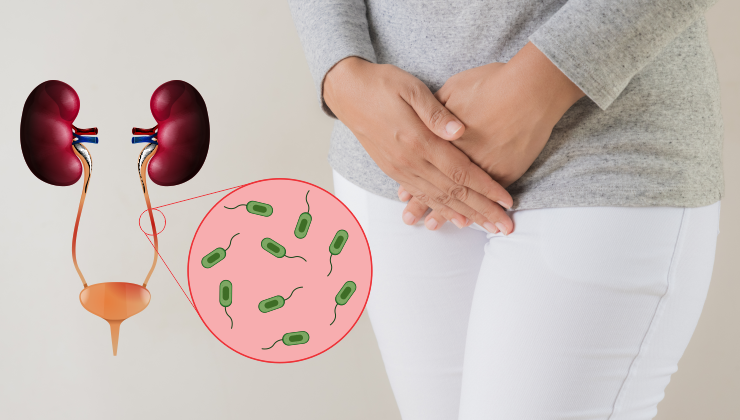
UTIs are common bacterial infections that can affect any part of the urinary tract, including the kidneys (pyelonephritis), bladder (cystitis), ureters, or urethra.
Risk Factors:
- Female anatomy: Shorter urethra increases the likelihood of bacterial invasion.
- Sexual activity: Can introduce bacteria into the urethra.
- Obstruction: Urinary tract blockages like kidney stones, enlarged prostate, or a catheter increase the risk.
- Diabetes: Increases the likelihood of infections due to impaired immune function.
Symptoms:
- Dysuria (painful urination)
- Frequent urination, urgency
- Cloudy or foul-smelling urine
- Lower abdominal pain or pelvic discomfort
Treatment:
- Antibiotics: Depending on the bacteria, antibiotics like trimethoprim/sulfamethoxazole or ciprofloxacin are used.
- Pain relievers: Phenazopyridine can alleviate urinary discomfort, but it’s not a cure for the infection.
- Prevention: Drink plenty of water, wipe front to back, urinate after intercourse, and avoid irritating products like douches or powders.
Outcome: With appropriate antibiotic treatment, UTIs usually resolve quickly. However, recurrent UTIs can be a challenge, especially in individuals with anatomical abnormalities or those with a weakened immune system.

